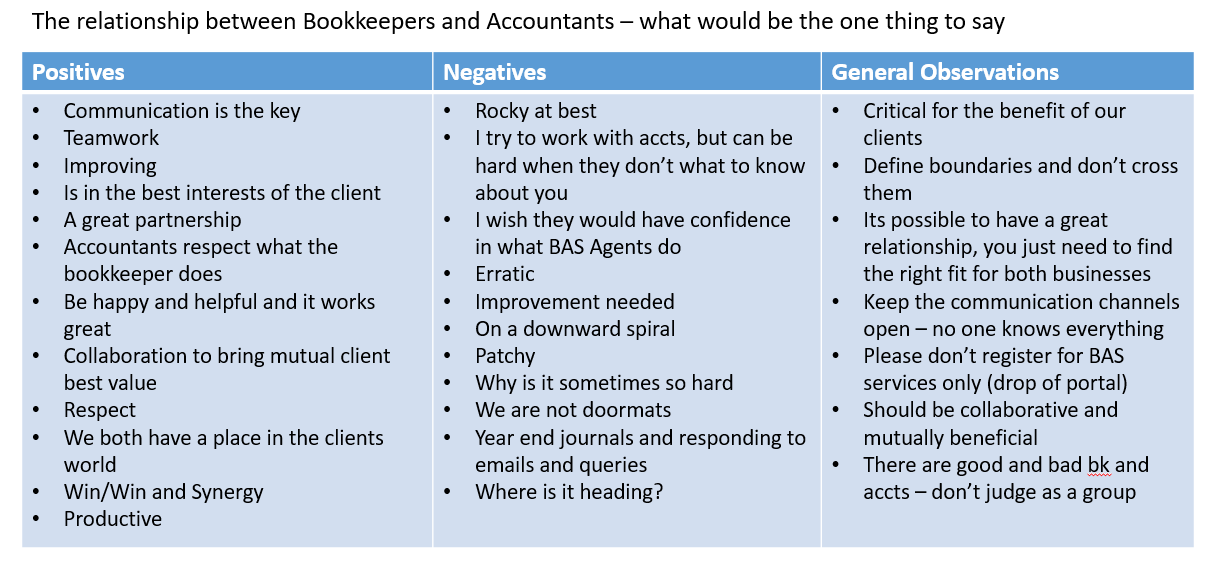
Bookkeeper and Accountant Collaboration – Eight REAL Things an Accountant Should Look for When Looking for a Bookkeeper to Collaborate With
There has been an “interesting” article published within the last few days, identifying 8 things to look for when selecting a bookkeeper to collaborate with. The article is (apparently) addressed to accounting firms that are looking to develop a collaborative relationship with bookkeepers.
The article has been edited since its original publication (there was a reference to a home-based bookkeeper, in between working with your clients, taking kids to school, hanging out the washing, and watching Dr Phil – the original article can be found here), but the underlying message hasn’t changed. It implied that if you owned a bookkeeping practice, earning less than $75,000 per year, working from home, not using cloud software or add-ons, didn’t have a website, and used a mobile phone to run your business – you weren’t worth collaborating with.
Understandably, this caused great consternation within the bookkeeping and (pleasingly) accounting industries. I administer the Bookkeepers in Practice (Australia) Facebook group (800+ members), and co-admin the Bookkeepers Revolution Facebook group and the Bookkeeper Revolution LinkedIn Group (10,000+ members combined). The response by members to the article has been scathing.
Ironically, I recently facilitated a webinar with Chris Wheatley, principal of Scope Accounting on the topic of “Bookkeepers and Accountants – working together collaboratively”. It’s a topic I’m passionate about.
As part of that discussion, we asked bookkeepers to answer: “What would be the one thing to say” about the relationship between bookkeepers and accountants? Their responses are summarised below — and highlight the challenges we already face, without the negativity from the original article.

The original article did nothing to build positive relationships between bookkeepers and accountants, and some now feel it has done real damage. So, here it is – from a bookkeeper with 10+ years' experience (as a sole trader and with staff, from home and commercial offices), who has worked collaboratively with accountants since the early 2000s… Eight REAL things an accountant should look for when looking for a bookkeeper to collaborate with.
(And yes, this could easily be flipped to: “Eight REAL things a bookkeeper should look for when looking for an accountant to collaborate with.”)
One – Are they a Registered BAS Agent?
If they are, you know they’ve got the education, experience, and legal authority to undertake BAS Agent services. Your clients are protected under safe harbour provisions, and the bookkeeper is covered by Professional Indemnity insurance and likely a member of a recognised professional association.
They’ll also be maintaining their registration with continuous professional development. Respect the skills of a Registered BAS Agent – they’ve earned it.
Two – Do they understand the industries you work with?
If you focus on a niche, does the bookkeeper have deep understanding and experience in it? In retail or hospitality, do they understand super thresholds and shift loading? Have they worked with inventory-heavy environments?
Bookkeepers gain a lot of grassroots knowledge across industries. Respect it — and harness the value they bring to your clients.
Three – Will they respect your relationship with your clients?
Nothing worse than referring a client and having them move firms, or be told the bookkeeper has partnered with another tax agent.
While there are situations where change may benefit the client, the relationship should never be based on undercutting the other party.
Four – Do they speak positively about other accountants?
Everyone has horror stories. But if all you hear is negativity, that could be a red flag.
Five – Do they facilitate open communication between you and the client?
Are they available to explain their work in the context of your client’s business? Do they loop you into relevant discussions?
Often the bookkeeper is the first to spot an issue. You want someone who opens the communication loop so that small problems don’t become big ones.
Six – Do they respect the boundaries of the relationship?
Are they willing to discuss who handles what, and put boundaries in place to avoid duplication and confusion?
True collaboration means synergy – with the client’s best interest at the centre.
Seven – Are they continuously learning and open to new ideas?
Great bookkeepers are always upskilling, not just for CPD but to offer better service and maintain industry expertise. They’re adaptable, open to new ideas, and ready to collaborate.
Eight – Do they drink wine?
OK, this one’s just to check who’s still reading. But seriously, if you haven’t picked up the message about what makes a great collaboration by now… cheers!
Chris Wheatley commented in our webinar that we’re seeing a convergence of the bookkeeping and accounting professions. Within 5–10 years, aside from compliance registrations, the skillsets and client relationships may be running in parallel.
If that happens, collaboration may become obsolete — and both parties will simply be respected for the value they deliver.




Leave a Comment